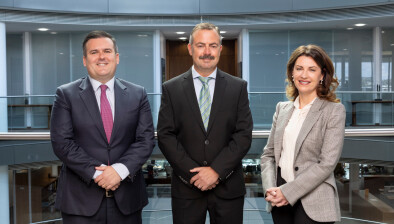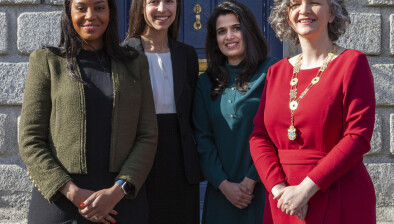Doug McMahon: Greenwashing — which adverts get hosed down?

Doug McMahon
Doug McMahon, partner at McCann FitzGerald, examines the tightening regulation of businesses’ environmental claims in Ireland and across Europe.
As consumers become increasingly well-informed about environmentally friendly practices and causes, brands must ensure that any sustainability claims made in their marketing communications are able to withstand careful scrutiny.
The Advertising Standards Authority of Ireland (ASAI) recently pulled the brake on an advertisement by a car manufacturer which was held to have overstated the manufacturer’s green credentials, and the European Commission intends to amend the Unfair Commercial Practice Directive and the Consumer Rights Directive to ban the practice of greenwashing entirely.
Background
The term “greenwashing” was originally conceived in the 1980s to describe misleading and false claims made by organisations about the positive impact a company, product or service has on the environment. Forty years on, there has been renewed interest in how businesses “greenwash” themselves as a marketing tool. National and European regulators are now doubling their efforts to rebuke and outright prohibit the practice to protect consumers from claims that are too green to be true.
Last month, the Advertising Standards Authority in the UK banned a series of HSBC adverts that promoted their promise to plant two million trees and provide $1 trillion in green financing. The watchdog found that the bank had omitted material information about its own contribution to emissions, as it had admitted in its annual report to financing businesses that emit 65.3 million tonnes of carbon dioxide per year in the oil and gas industries. It concluded that, despite their green initiatives, “the ads omitted material information and were therefore misleading”. In Ireland, “greenwashing” falls under the remit of the ASAI and the Competition and Consumer Protection Commission (CCPC).
The ASAI
Section 15 of the Code of Standards for Advertising and Marketing Communications in Ireland distinguishes two different types of environmental claims made by advertisers:
- ‘Absolute’ environmental claims – These claims should be “supported by a high level of substantiation” and should not be “used without qualification unless advertisers can provide substantiation that their product will cause no environmental damage”. This applies over the course of the product’s lifecycle (i.e. from raw material to end of life).
- ‘Qualified’ environmental claims – These claims may be acceptable if advertisers can demonstrate that their product provides “an improvement in environmental terms”. Qualified claims should also be capable of substantiation.
In a recent decision by the ASAI, a sponsored article which referred to the use of the Land Rover Defender by an Irish TV celebrity as “planting the seeds of a more sustainable life”, was held to be in breach of the ASAI Code on the basis that “evidence demonstrating that the vehicle justified being associated with sustainability claims, albeit qualified, has not been submitted”. In total, the Complaints Committee considered 28 submissions from members of the public and “noted that the collective complaints predominantly concerned a suggestion of greenwashing related to the advertised product engine type, its overall size and emissions”. Where the article asserted that “mild hybrid tech cuts down on the amount of fuel”, the ASAI found this is likely to mislead consumers due to the omission of a comparison to any other mode of transport in the article. The ASAI concluded that the advertising should not be used again in its current format.
The CCPC
The CCPC also has a role to play in ending the practice of greenwashing. The CCPC is tasked with enforcing the Consumer Protection Act 2007, which prohibits traders from engaging in misleading commercial practices. In 2021, the European Commission and national consumer authorities (including the CCPC) announced that they had conducted a “sweep” on the sustainability claims made by businesses engaged in selling garments, cosmetics and household equipment online. It found that:
- in more than half of cases, the trader did not provide sufficient information to judge the claim’s accuracy;
- in 37% of cases, the claim included vague statements such as “conscious”, “eco-friendly” and “sustainable” to convey to the consumer that a product had no negative impact on the environment; and
- in 59% of cases, the trader did not provide accessible evidence to support their claim.
What’s next?
With the launch of the European Green Deal, the European Commission has proposed strengthening the law in this area and amending the Unfair Commercial Practices Directive and the Consumer Rights Directive to ban the practice of “greenwashing” explicitly. This would prohibit businesses from deceiving consumers as to the environmental or social impact of their products. The Commission envisages adding new practices to their “black-list” of misleading practices, such as:
- making generic and vague environmental claims where the environmental performance of the product of trader cannot be demonstrated;
- making an environmental claim about the entire product, when it only concerns one aspect of the product; and
- displaying a sustainability label that has not been verified by a third party scheme or established by public authorities.
In light of the above, businesses should continue to ensure that they do not mislead consumers on their environmental efforts and are able to provide evidence or sufficiently qualify any sustainability claims included in their marketing and advertisements. Otherwise, they may draw attention to themselves in the form of unwanted attention from the CCPC and/or complaints from members of the public to the ASAI.
![]()
- Doug McMahon is a partner in McCann FitzGerald’s technology and innovation group. Ruth Hughes also contributed to this article.









